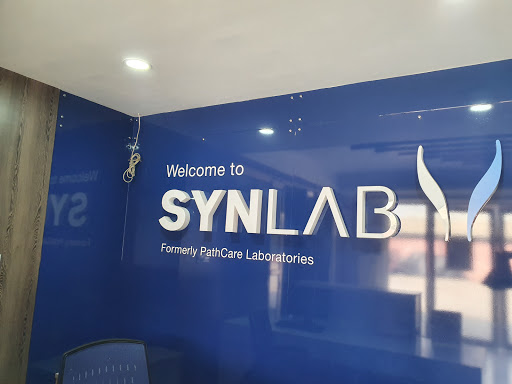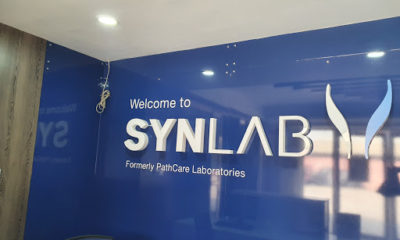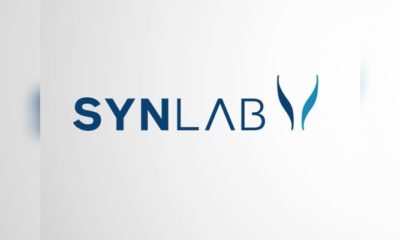NEWS
Entrenching Trust In Medical Laboratories Through Service Quality, ISO 15189 Accreditation

Relevant stakeholders opine that trust and quality are paramount in the realm of healthcare.
Patients rely on medical laboratories for accurate and reliable test results, as the foundation of diagnosis and treatment.
Hence, the ISO 15189 accreditation stands as a beacon, because it guides laboratories towards the establishment of a stringent quality management system.
Biztellers reports that the ISO 15189 is an international standard specific for medical laboratories. It outlines the requirements for quality and competence that laboratories need to meet to ensure accurate and reliable testing, calibration, and sampling processes.
This is why accreditation against this standard indicates that a laboratory has not just established, but is operating a quality management system and adheres to stringent requirements of the standard.
This clarification highlights the multifaceted benefits of ISO 15189 accreditation in enhancing patient trust and service quality within medical laboratories.
What then are the benefits of ISO 15189 accreditation to the provision of medical laboratory services?
A Vivid Scenario
Supposing that a patient, Adeola Adeolu (not real names), seeks diagnostic services at SYNLAB Nigeria.
And assuming that he was initially hesitant about the accuracy of test results, his concerns could be assuaged upon learning from his referral doctor that SYNLAB Nigeria does not compromise on quality because of its ISO 15189 accreditation.
Knowing that SYNLAB has this accreditation instills confidence in Adeolu, because it reinforces the reliability and credibility of the laboratory’s services.
Armed with the trust, Adeolu proceeds with the tests, confident in SYNLAB Nigeria’s commitment to excellence.
Biztellers shares below discerning members of the public look out for the ISO 15189
- ISO 15189 accreditation requires medical laboratories to adhere to a comprehensive framework for implementing quality management systems in order to ensure consistent and reliable test results. Such a guide enables organizations to access best practices and consistently implement them.
- Adhering to ISO 15189 standards requirements enhances patient safety by minimizing errors and ensuring accurate diagnostic outcomes. Adeolu’s confidence in accepting to run tests at SYNLAB Nigeria because of its ISO 15189 accreditation hinges on his belief that he would get accurate results.
- ISO 15189 accreditation elevates the global recognition of medical laboratories, facilitating collaborations and partnerships with healthcare institutions worldwide. Customers of an ISO 15189 certified laboratory can be confident that the result they receive from their laboratory will be acceptable across the globe.
- Accreditation under ISO 15189 indicates that the laboratory is meeting regulatory obligations, promoting ethical practices and is a legally responsible organization.
- Emphasizing staff competence and training, ISO 15189 accreditation affirms that laboratory personnel possess the necessary skills to maintain high-quality standards in laboratory operations. ISO 15189 accredited laboratories pay attention to staff training, recognizing that maintaining high quality requires having highly competent team.
- ISO 15189 standard requirements incorporate risk management principles, enabling laboratories to identify and mitigate potential risks effectively, thus ensuring patient safety. It fosters a culture of continuous improvement within medical laboratories, driving innovation and excellence in service delivery.
- ISO 15189 accreditation distinguishes laboratories as leaders in quality healthcare delivery, providing a competitive advantage and attracting patients and healthcare providers seeking reliable diagnostic services.
Conclusion
The ISO 15189 accreditation serves as a symbol for excellence in medical laboratories, enhancing patient trust and assuring service quality.
SYNLAB Nigeria’s embrace of this international standard and compliance with its requirements solidifies its position as a trusted partner in healthcare delivery. As the healthcare landscape evolves, ISO 15189 accreditation will remain indispensable tool, driving innovation, patient-centered care, and unwavering confidence in medical laboratories worldwide.
About SYNLAB Nigeria
SYNLAB Nigeria is a member of the SYNLAB group, with presence in 35 countries in four continents.
The organization has over 30 active locations across Nigeria and has been ISO 15189 certified since 2006.
SYNLAB Group is the leader in medical diagnostic services and specialty testing in Europe.
The Group offers a full range of innovative and reliable medical diagnostics to patients, practicing doctors, hospitals and clinics, governments and corporates.
Providing the leading level of service within the industry, SYNLAB is the partner of choice for routine and specialty diagnostics in human and veterinary medicine. The Group continuously innovates medical diagnostic services for the benefit of patients and customers.
SYNLAB holds leading positions in most markets, regularly reinforcing the strength of its network through a proven acquisition strategy.
NEWS
Moghalu Prescribes Good Governance As Panacea To Ethnic Agitation

The President of the African School of Governance, Kingsley Chiedu Moghalu has admonished state actors against resorting to brutal force in the bid to muscle out separatist agitators.
In the aftermath of Mazi Simon Ekpa, the Finland based Biafran nationalist agitator being caught in legal web and the Nigerian government moving swiftly to seek his repatriation, the former deputy governor of the Central Bank of Nigeria (CBN) has cautioned that ‘We either fix our problems, or our problems will eventually “fix” us. No alternative to a renegotiated union.’
ALSO READ: Finnish Police Arrest Simon Ekpa Over Terror-Related Allegations
The political economist, while expressing his hope in Nigeria, made it clear that “hope is not a strategy”.
He bared his mind in a series of posts on his verified handle on micro-blogging site, X on Friday.
Moghalu wrote, “Despite sustained contemporary difficulties, I am hopeful about Nigeria. But hope is not a strategy. We need to improve state capacity for effective governance.
“We either fix our problems, or our problems will eventually “fix” us. No alternative to a renegotiated union.
“We must learn to be honest with ourselves and address the root causes of our problems. Why ignore them, when the problem is actually quite solvable? The problem with continuing with this approach is that when the danger crystallizes, those who thought they were benefiting from
NEWS
N1.7trn Loan: Atiku Blames NASS For Worsening Nigeria’s Debt Burden
Former Vice President, Atiku Abubakar has criticized the federal government’s plan to secure an additional N1.7 trillion loan through Eurobonds to cover a shortfall in the 2024 budget, describing the borrowing as unsustainable and harmful to Nigeria’s economy.
In a statement shared on Thursday via his X (formerly Twitter) handle, Atiku accused the Bola Tinubu-led administration of burdening Nigerians with debt while failing to provide clear answers about the country’s fiscal challenges.
READ ALSO: CSR: Dangote Cement Fuels Education With Support Projects At Lagos Schools
He also faulted the National Assembly for enabling what he called a “voracious appetite” for loans.
The former Peoples Democratic Party (PDP) presidential candidate expressed alarm over a recent World Bank report ranking Nigeria as the third most indebted country to the International Development Association (IDA), calling the development troubling.
“The recent report released by the World Bank, showing Nigeria as the third most indebted country to the International Development Association (IDA), is very concerning,” Atiku stated.
He raised further concerns about the government’s decision to benchmark the proposed loan at an exchange rate of 1 USD to N800, despite the Central Bank of Nigeria’s official rate being over N1,600.
“What makes this particular loan proposal even more concerning is that it is benchmarked at the exchange rate of 1 USD to N800, whereas the current exchange rate from the Central Bank of Nigeria stands at over N1,600 to 1 USD,” he said.
Atiku questioned the need for additional borrowing, given the government’s earlier claims of record-high revenue collection.
“In July this year, Tinubu boasted that the FIRS and Customs under his watch had collected all-time high revenues to finance the budget. Why are they still borrowing?” he said
He accused the government of a lack of transparency, describing the borrowing spree as detrimental to Nigerians already struggling under economic hardship.
“There is something that they are not telling Nigerians, even as they are being crushed by a combination of their failed trial-and-error policies and loan rackets.”
Atiku also referenced a report by BudgIT, a budget monitoring group, which criticized the 2024 budget for its inefficiencies.
He alleged that corruption, rather than infrastructure or development needs, was driving the government’s borrowing decisions.
“These loans are powered by corruption and not for infrastructure and development needs. This voracious appetite for humongous loans is deeply concerning,” he said.
Reflecting on Nigeria’s financial history, Atiku lamented the return to significant foreign indebtedness just years after former President Olusegun Obasanjo’s administration cleared the country’s debt.
“It is agonizing to see that just a few years after the Obasanjo administration took us out of foreign indebtedness, we are today back at the top spot in the same conundrum,” he stated.
He called for a more cautious approach to borrowing, urging the government to prioritize fiscal responsibility and transparency to avoid worsening Nigeria’s economic challenges.
International News
ICC Issues Arrest Warrants For Israeli Prime Minister Netanyahu, Others
The International Criminal Court (ICC) has taken a historic step, issuing arrest warrants for Israeli Prime Minister Benjamin Netanyahu and former Defense Minister Yoav Gallant.
The charges include crimes against humanity and war crimes allegedly committed during Israel’s recent assault on Gaza.
In a detailed statement, the ICC accused the Israeli leaders of “intentionally and knowingly depriving the civilian population in Gaza of objects indispensable to their survival, including food, water, and medicine and medical supplies, as well as fuel and electricity.”
READ MORE: Osun Govt Decries Attempted Murder Of Park Mgt Chairman By Police
The ICC’s move marks a significant escalation in international scrutiny of the Israeli-Palestinian conflict. Netanyahu and Gallant are alleged to have orchestrated policies that caused severe harm to the civilian population in Gaza, leading to widespread condemnation from human rights organizations.
Alongside the charges against Israeli officials, the ICC also issued an arrest warrant for Hamas military commander Mohammed Deif. Deif has long been a central figure in Hamas’s military operations. Israel’s military claims to have killed him in a July airstrike, although this has not been independently verified.
The warrants highlight growing calls for accountability amid the ongoing conflict in the region. The ICC’s actions are likely to provoke heated debate and may complicate diplomatic efforts aimed at resolving the crisis.
With the warrants issued, global attention now turns to how the international community will respond and whether any practical steps will be taken to enforce them.


















